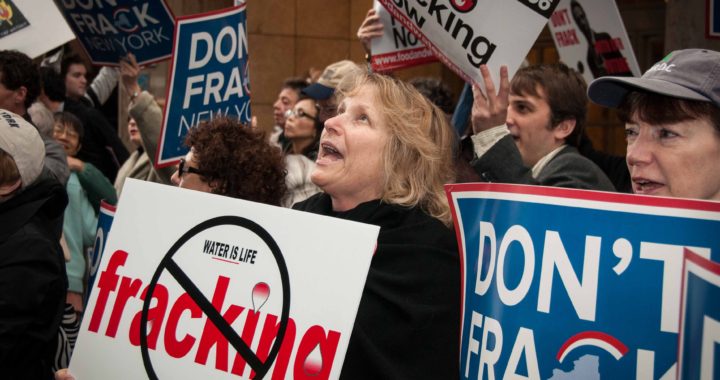Among the myriad ongoing conflicts between anti-fracking protestors and the oil and gas industry, fracking’s supposedly harmful impact on nearby water sources is one of the most controversial. An integral part of the fracking process, water has been at the center of a debate that is still ongoing.
Frankly, the continued outrage over fracking and its relationship with water is getting increasingly shaky. New technology, industry pledges, and old-fashioned scientific evidence is proving that when done responsibly the extraction of shale through fracking isn’t a concern.
Water’s Role in the Fracking Process
When a site has been chosen for fracking, a well is drilled — typically to around 7000 feet. At that point, water infused with sand and chemicals is forced into the hole at high pressure. The sand in the water helps create cracks in the rock that lets oil and shale flow to the surface.
Now, where protestors get a stick in their craw is the next part: only about 40 percent of that water returns to the surface, begging the question where does the other 60 percent of that chemically-treated water end up?
Report Finds that Fracking Doesn’t Harm Drinking Water
Anti-fracking protestors would have you answer the following question with, “If fracking wastewater isn’t rushing back to the surface, then it must end up in our drinking water, right?” It’s a natural assumption to make. It’s also totally wrong.
Over the last several years, not one, not two, but eight extensive studies have been released that state there is no link between fracking and the contamination of drinking water. Everyone from private research groups to universities to the Obama-era EPA have produced years-long studies that state unequivocally that fracking isn’t bad for the water.
The Industry Is Trying to Fix Any Potential Issues
Even though science has proven that fracking wastewater doesn’t harm drinking wells, the oil and gas industry is still consistently working to innovate the fracking process in pursuit of a process that’s more efficient, cleaner, and cheaper. They’re making progress, too.
Colorado-based Clean Chemistry believes it has found a way to address industrial water waste, ultimately making the entire process cheaper and safer for the environment. They’re just one of the companies who are working to insure that fracking technology is constantly updating to stay ahead of the curve. That means that even the glimmer of a chance that fracking might harm drinking water will soon be a near impossibility.
The Industry Wants to Talk, Not Scream
The oil and gas industry is desperate to have anti-fracking protestors understand its commitment to the planet. The industry’s actions seem to prove just as much. New technology is constantly being incorporated into the process and oil and gas executives from the world’s biggest companies have been voluntarily meeting carbon standards even though they’re not legally compelled to do so.
At every turn, the United States energy sector is taking great pains to let the world know that they want to partner up with their detractors and work toward a solution that benefits everyone. Todd Staples, president of the Texas Oil & Gas Association, believes that if the facts were properly explained, protests would end quickly and quietly. And Staples (along with several other industry employees) would love the chance to explain those facts simply, clearly, and compassionately.
Protestors Are Committed to the Debate, Not the Solution
Yet, protests continue to pop up in response to fracking, and those misinformed protestors continue to decry the impact of fracking on ground water, because it sounds dramatic and makes the industry out to be villainous. After all, what kind of fiend would prize their income over the health of the people they purported to serve? No one, that’s who.

